Taliban Arrests Man Offering American Surveillance Balloon To Iran
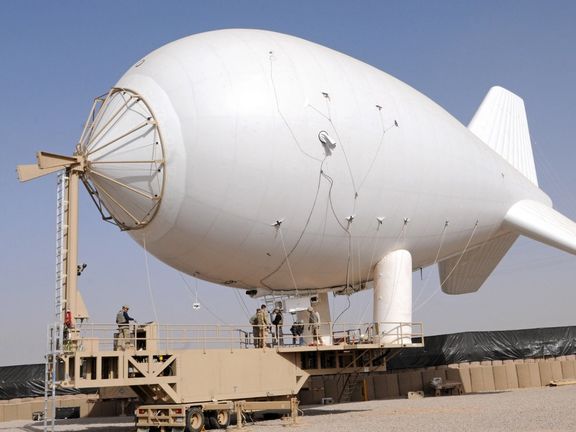
The Taliban said Wednesday they had arrested a man trying to sell an advanced United States military reconnaissance balloon to Iran.

The Taliban said Wednesday they had arrested a man trying to sell an advanced United States military reconnaissance balloon to Iran.
The Interior Ministry in Kabul announced the man, named only as ‘Mostafa,’ and his still-at-large accomplice ‘Alireza’ were negotiating over a price well short of the balloon’s cost. The ministry said Mostafa was from the central province of Uruzgan.
The balloon is a tethered aerial detection system known as the Joint Land Attack Cruise Missile Defense Elevated Netted Sensor System (JLENS) and is used to detect missiles, drones, piloted aircraft, boats, and ground vehicles. JLENS has surveillance radar scans in all directions and can provide constant, 360-degree coverage extending 550km.
In the weeks before and after the US military withdrawal from Afghanistan last summer, the Taliban seized weapons and equipment left by fleeing Afghan forces. Reuters suggested last year that US intelligence assessed Afghanistan’s new rulers acquired more than 2,000 armored vehicles, including Humvees, and up to 40 aircraft potentially including UH-60 Black Hawks, scout attack helicopters, and ScanEagle military drones.
According to Reuters, between 2002 and 2017, the United States transferred to the Afghan military around $28 billion in weaponry, including rockets, night-vision goggles, and intelligence-gathering drones.
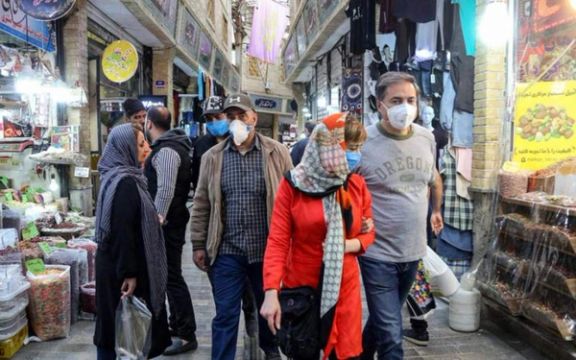
Food prices are rising in Iran with retailers saying supplies have decreased, while officials insist there is plenty of stored sugar, oil and other necessities.
The conservative Mehr news website on Friday published the latest report on rising prices, as many newspapers and websites have been covering the issue throughout this week.
Mehr said that one kilo of sugar is now offered for more than one dollar, which is a lot of money for an Iranian worker making $150 a month. Rice, another main food staple has risen to as much as $4 per kilo.
Retailers have also begun raising the price of vegetable cooking oil, as they say supplies from producers have decreased.
Food prices have reportedly increased by more than 60 percent since the beginning of 2021 and more inflation could be on the way if the government reduces import subsidies according to a parliament decision to save money.
Officials said Thursday the government of President Ebrahim Raisi has decided not to implement the law to cut subsidies for the time being. One official insisted that last month the central bank appropriated $11 billion for imports, although he said about $4 billion was for essential goods. He did not specify what imports were covered by the remaining $7 billion.
Prices for most essential goods are nominally fixed by the government, but the private sector often disregards the guidelines based on supply and demand. Many complain to the media that merchants inflate prices perhaps with the help of government bureaucrats and politicians.
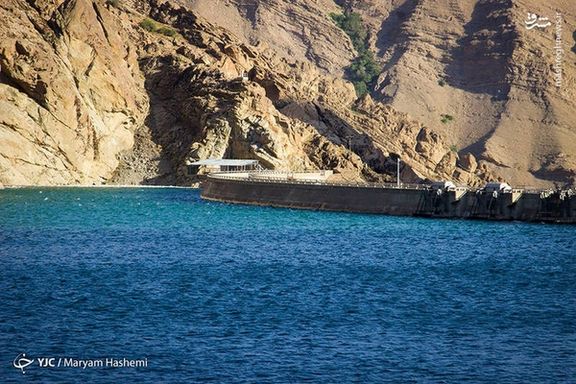
Iraq says it is filing an international lawsuit against Iran over allegedly diverting water that previously flowed into Iraq.
According to the Saudi government-owned al-Arabiya Thursday, Minister of Water Resources Mahdi Rashid al-Hamdani said Iran had cut off more than 90 percent of water tributaries and was not cooperating with Iraq to limit damage during drought. He said meetings were taking place with the Iraqi Ministry of Foreign Affairs to prepare the lawsuit.
Last year, Hamdani accused Iran of digging tunnels and trying to alter the water flows, and said Iraq had completed procedures to file a lawsuit with the International Court of Justice.
Iraq faces acute water shortages. A senior adviser at the water resources ministry, Aoun Diab, said reserves were “far lower than what we had last year, by about 50 percent, because of poor rainfall and the quantities arriving from neighboring countries.”
The United Nations Environment Program’s in 2017 ranked Iraq as the fifth most vulnerable country globally to water shortage and food availability. The Tigris and Euphrates, flowing from Turkey and Syria, supply 98 percent of Iraq’s surface water.
Smaller rivers come from Iran, which has suffered drought for at least a decade. According to the al-Arabiya report, Hamdani claimed Iranian projects had somehow deprived Iraq of 20 percent of its total water resources.
Across the Middle East, water shortages have led to tensions between countries and within countries. Iranian officials have warned of a further fall this year in precipitation.

Iran’s religious and military figures Friday unleashed threats against “enemies”, particularly Israel, as they praised the IRGC for its activities in the region.
The main speaker at Tehran’s Friday Prayer, the hardline ayatollah Ahmad Khatami highlighting the Revolutionary Guard, IRGC, as a force enjoying popularity, said, “It is IRGC’s honor to say we fired missiles and if you take one more step, Tel Aviv and Haifa will be flattened to the ground.”
The Young Journalists’ Club website, an IRGC affiliated media outlet, while covering Khatami’s remarks reminded its leadersthat in March the Guards fired “ten precision Fateh missiles” at Erbil, the center of northern Iraq’s Kurdish region. Tehran claimed that the target was a Mossad base that was plotting against the Islamic Republic.
Ayatollah Khatami in his speech also said the IRGC should be removed from the US list of terrorist organizations, and threatened anyone who would say otherwise.
Eleven months of talks in Vienna to revive the 2015 Iran nuclear deal have come to a halt partly because Tehran has demanded that the Biden administration reverse an executive order by former President Donald Trump, which designated the Revolutionary Guard as a Foreign Terrorist Organization (FTO).
Khatani’s threat to those who would oppose Iran’s demand was most likely directed at domestic critics, such as former presidential daughter Faezeh Hashemi who had said last week in a social media debate that removing the IRGC from the FTO list is not in Iran’s interest. “The only way for the IRGC to return to the barracks is to keep them on the sanctions list,” she argued.

The Biden administration has said it would consider removing the IRGC from the terrorist list if Iran was ready to discuss non-nuclear issues, meaning its regional foreign policy and support for militant groups.
Khatami also demanded that Iran’s PMD (Possible military dimensions) file should be closed and all nuclear and non-nuclear sanctions removed. “The final message is this: Whatever the Supreme Leader wishes should be achieved, and the negotiators cannot deviate from his red lines even one inch,” the firebrand cleric said.
Deputy commander of the Revolutionary Guard, Ali Fadavi also spoke elsewhere on Friday and predicted “America’s isolation and the destruction of the Zionist regime.” He said the nature of the Islamic Republic is to fight “arrogance”, a term used to mean the United States, insisting that this has not changed in 43 years since the establishment of the religious ruling order.
Comparing Iran’s resources with the those of the United States, Fadavi said “America’s military budget is $80 billion,” perhaps not realizing that the latest US defense budget is over $700 billion. Despite the huge disparity, he said, Yemen’s Houthis are able to dictate terms to Saudi Arabia, without explaining what the relation is between Iran’s resources and the military power of Yemen’s rebel forces.
Fadavi admitted that Iran’s economic situation is not good but blamed it on following “the orders of the enemy” and having the United States as a guide. He claimed that if Iran follows God’s and Quran’s rules all economic problems can be resolved.
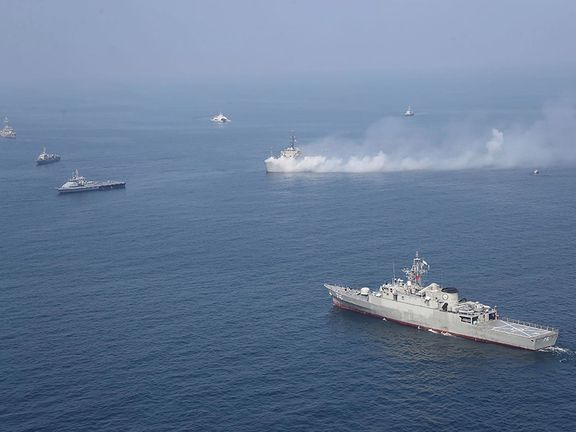
Iranian Army’s Navy Commander says the country’s naval fleet will maintain a presence in the Indian Ocean as well as free waters of the world.
In an interview with the Arabic-language al-Alam television channel Thursday, Rear Admiral Shahram Irani, said no foreign country would dare to enter Iran’s territorial waters. Irani said there was no justification for the regional presence of navies from further afield.
Both Iran’s traditional army (Artesh) and the Revolutionay Guard (IRGC) have naval forces.
The commander described the northern Indian Ocean as the “main waterway to connect the continents,” and that if Iran did not have an “effective presence, governments that don’t have the right will come and approach our territorial waters.” Irani said Iran’s fleet would appear “wherever we feel threatened.”
Iran has since 2019 carried out naval exercises with Russia and China and has looked to expand its presence beyond the Red Sea and north-west Indian Ocean. The last major clash between Iran and the United States, whose Fifth Fleet is based in Bahrain, was quickly resolved diplomatically in 2016 after two American small boats adrift were seized by Iran’s navy after entering Iranian waters.
“We escort our ships in all the waters across the globe to guarantee security… Our presence offers security to the region and the entire world," Irani said.
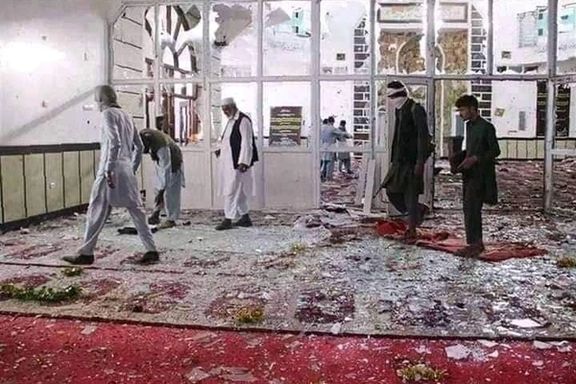
Reacting to four explosions Thursday in Afghanistan, Iran’s Foreign Ministry spokesman Saeed Khatibzadeh expressed concern over a rising number of “bitter incidents.”
In the northern Afghan city of Mazar-i-Sharif, a bomb killed at least 20 worshippers in the Seh Dokan Shiite mosque, in the second major attack on Afghanistan’s Shiite community, mostly Hazara, in a week. The Islamic State group (Isis/Daesh) claimed responsibility. Fifty-eight people were injured, 32 seriously.
Hazaras – who are an ethnic and religious minority making up around 20 percent of Afghanistan’s population – have been frequently targeted by Sunni extremists who regard them as heretics. The Mazar-i-Sharif bombing came two days after blasts tore through a Shiite high school in western Kabul, killing at least six people and wounding 11.
There was some confusion over whether Isis-Daesh claimed responsibility for a second explosion Thursday near a police station in Kunduz that killed four and injured 18.
In a third attack, a Taliban vehicle was hit by a roadside mine in eastern Nangarhar province, killing four Taliban members and wounding a fifth. The fourth explosion, caused by a mine planted in the Niaz Beyk area of Kabul, wounded two children.
Like other Afghan neighbors, Iran has not formally recognized the Taliban authorities that took over when the United States last summer ended its 20-year military presence. Tehran has called for a broad-based government.